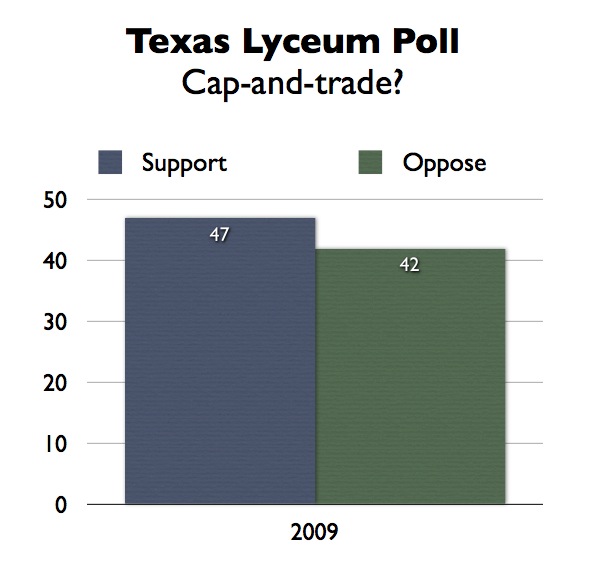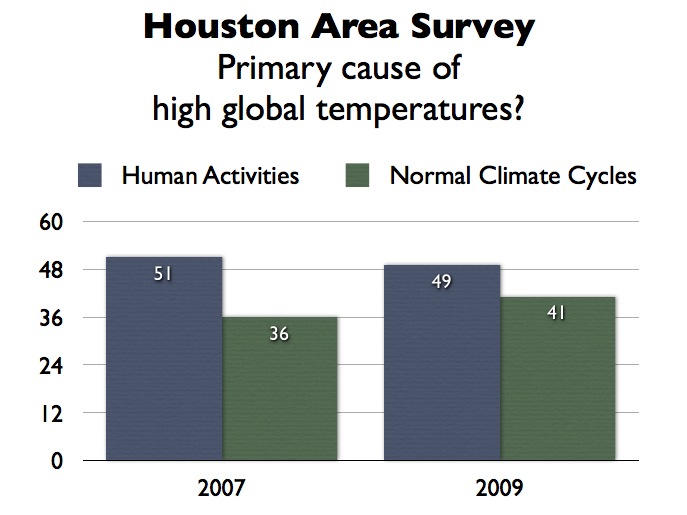America: Where Everyone is Below Average (on understanding climate change)
NULL

Texas Climate News highlights some interesting, if unsettling, results from two public opinion surveys. First, a Texas Lyceum poll finds that Texans really aren’t all that different from other Americans when it comes to support for a congressional cap-and-trade program to reduce greenhouse gases. Great news: we’re just about as complacent!

A national survey by the Washington Post, using an almost identically-worded prompt, found that support nationwide was 52 percent in favor to 42 percent.
But, let’s turn to the more disturbing of the two polls I mentioned above. It’s a survey conducted solely in Harris County (Houston) by Rice University sociologist Stephen Klineberg.

Houston’s the energy capital so perhaps it’s not surprising that only half of the people think climate change is driven by human activity. But it’s still disturbing. Scientists – outside of a handful of very marginal naysayers who can’t get published – agree on the mechanism of global warming. There’s simply no scientific debate. But politics and science are two different animals.
In Texas, the Republican leaders – from top to bottom – are global warming deniers. The Republican grassroots are just as willfully ignorant. Americans for Prosperity, one of the groups behind the anti-health care mobs, is touring around the country with a hot air balloon, spreading pseudo-science among the hoi polloi.
There’s always been a strong anti-intellectual and anti-science streak running through American society. But in recent years, we also have to include the factor of political polarization. According to Texas Climate News (who, by the way, is doing yeoman’s work trying to advance a rational, scientific perspective on climate):
A striking feature of the Houston Area Survey findings on questions about climate in recent years is “the degree to which it has become a partisan issue,” Klineberg said.
He discovered a growing separation in the views of Democrats and Republicans on environmental issues in general between 1990 (when there was essentially no partisan difference) and 2000, a period when he conducted the statewide Texas Environmental Survey.
The party divide was evident last year in a Houston Area Survey question that was not asked in 2009: “How serious a problem would you say is the ‘greenhouse effect,’ or the threat of global warming? Would you say: very serious, somewhat serious, or not very serious?”
In 2006 and 2008, both years when that question was posed, large majorities (77 percent in 2006 and 80 percent in 2008) answered “somewhat” or “very” serious. A major difference was manifest between the responses of self-identified Republicans and Democrats – in 2008, for instance, 32 percent of Republicans and seven percent of Democrats said “not very serious”, while 30 percent of Republicans and 68 percent of Democrats said “very serious.”
This is a real shame. There’s no reason why a conservative should be any less interested in empirical reality than a liberal. But as long as the Rush Limbaughs, Rick Perrys and Sarah Palins dominate the GOP, I’m afraid know-nothingism is here to stay.


